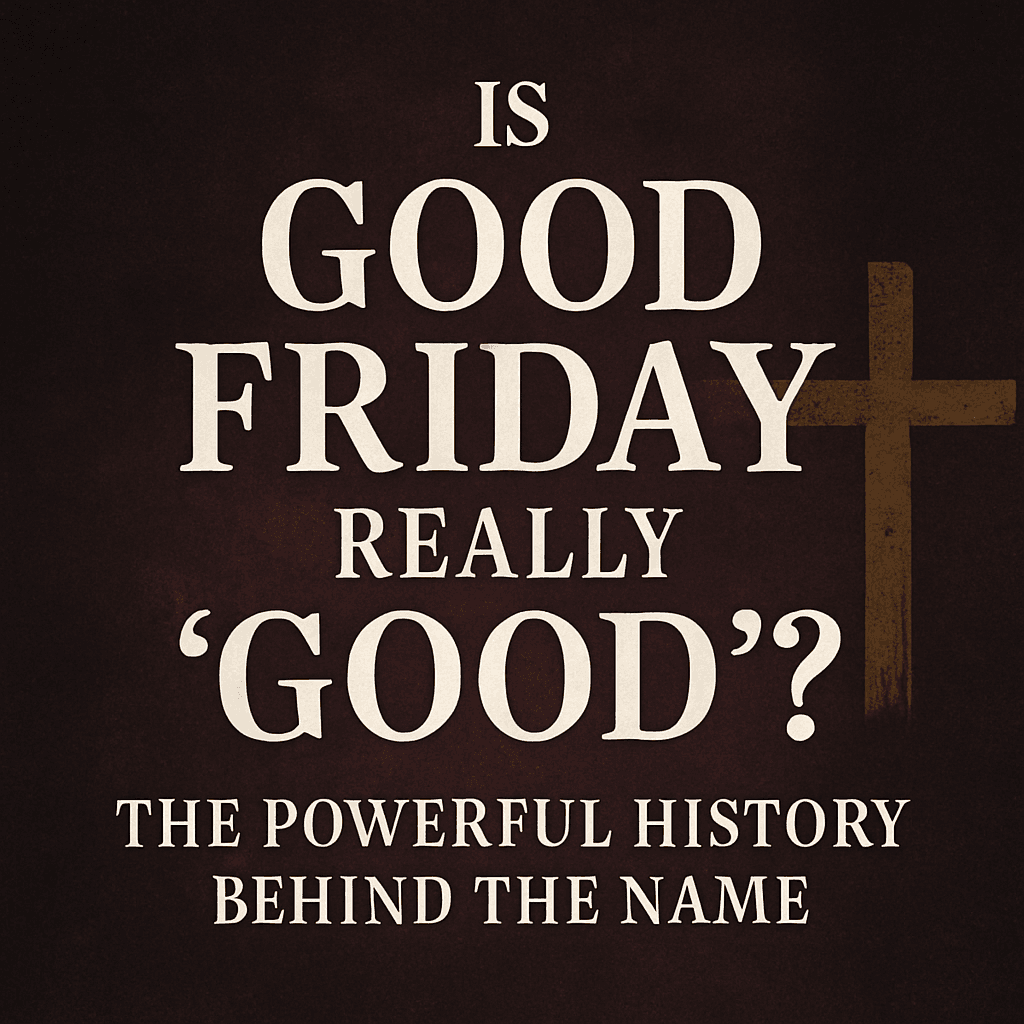
Good Friday—the day when Christians around the world reflect on the crucifixion of Jesus Christ—is a day filled with meaning, but also full of questions. One of the biggest questions that arises every year is: Why is it called “Good” Friday? After all, it’s a day that marks the suffering and death of a beloved religious figure, so why “good”?
Let’s break down the history and significance of Good Friday and explore why it’s not just a day of mourning but one with deep, transformative meaning for millions of people.
Why is it called 'Good' Friday?
You might wonder, how can a day marked by death and pain be considered “good”? Well, the term “Good” in Good Friday doesn’t actually mean happy or joyful. The word “good” used to have a different meaning, especially in older English. Back then, “good” often meant holy or sacred. So, in the original context, Good Friday refers to the sacredness of the day rather than any positive feelings it might invoke.
Some scholars believe that early Christians referred to this day as “Holy Friday” or “Great Friday”, and over time, the term evolved into “Good Friday,” especially as Christianity spread in English-speaking countries.
But why would Christians call such a sorrowful day “good” at all? The answer lies in what Good Friday represents—the sacrifice of Jesus, which, in Christian belief, was done to bring salvation to humanity. Even though the events of the day were tragic, they were seen as necessary for the redemption of humankind.
What Happened on Good Friday?
To understand why Good Friday is so important, we need to start with what happened on that day. Good Friday falls on the Friday before Easter Sunday, marking the final day of Holy Week. According to the New Testament, it was the day Jesus was betrayed, arrested, tried, and ultimately crucified.
The Betrayal: The events leading up to Good Friday began when one of Jesus’ own disciples, Judas Iscariot, betrayed him for thirty pieces of silver.
The Trial: After his arrest, Jesus was tried by both religious leaders and the Roman authorities. Despite being found innocent, he was sentenced to death.
The Crucifixion: Jesus was then forced to carry his cross to Golgotha, a hill outside Jerusalem, where he was crucified alongside two criminals.
His Death: After several hours of suffering, Jesus died on the cross. His death marked a turning point in Christian belief, symbolizing the ultimate sacrifice for humanity’s sins.
These events, as recorded in the Gospels, form the heart of what Christians remember on Good Friday. But how did this day become known as “Good Friday”?
A Day of Suffering and Hope
The duality of Good Friday—its sorrow mixed with hope—can seem confusing at first. How can a day that commemorates such a painful event also be filled with so much hope and meaning?
For Christians, Good Friday is a reminder that suffering is not the end. While Jesus’ death was painful, it was also an act of selflessness and love. His willingness to endure suffering is viewed as a way of offering forgiveness to those who believe in him. This sacrifice is central to the Christian faith, as it is seen as the atonement for sins.
The ultimate message of Good Friday is that, despite the pain and death, there is hope. This is why, for many, the day is not just about mourning; it’s about celebrating the possibility of spiritual renewal and redemption. The suffering of Good Friday sets the stage for the joy of Easter Sunday, when Christians celebrate the resurrection of Jesus—the victory over death.
Why Good Friday Matters Today
If you’re not Christian, you might still wonder: Why should I care about Good Friday? The significance of this day goes beyond religious tradition. Good Friday challenges us to reflect on deeper themes like sacrifice, love, and redemption, all of which resonate in human life, regardless of faith.
Whether you’re Christian or not, Good Friday offers an opportunity to pause and think about selflessness, the power of forgiveness, and the idea that even in our darkest moments, there can be hope for a brighter future.
